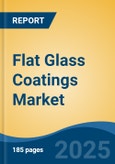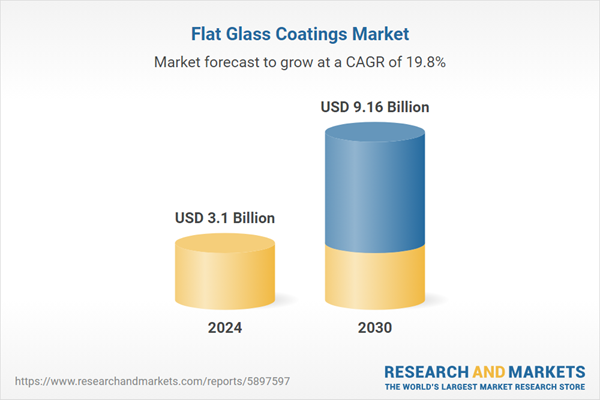Speak directly to the analyst to clarify any post sales queries you may have.
10% Free customizationThis report comes with 10% free customization, enabling you to add data that meets your specific business needs.
The market is set for long-term expansion, supported by a convergence of environmental mandates, technological advancements, and evolving industry requirements. As the global focus intensifies on sustainable building materials, energy efficiency, and design innovation, flat glass coatings are expected to remain a vital enabler transforming the way glass is used in modern architecture, next-generation vehicles, and renewable energy systems.
Key Market Drivers
Growing Demand of Flat Glass Coatings in Automotive Industry
The growing demand for flat glass coatings in the automotive industry is emerging as a key driver of growth in the global flat glass coatings market. As the automotive sector undergoes rapid transformation driven by evolving consumer preferences, regulatory shifts, and advancements in vehicle design the application of advanced coated glass has become increasingly critical. Several key factors highlight how this demand is fueling market expansion: Modern vehicles increasingly rely on functional glass surfaces that not only serve structural or aesthetic roles but also enhance driving safety and passenger comfort.Flat glass coatings are essential in delivering performance features such as: Anti-glare and anti-reflective coatings, which reduce visual strain and improve visibility under bright conditions or at night. UV-blocking coatings, which protect occupants from harmful ultraviolet radiation and prevent interior fading. Hydrophobic and anti-fog coatings, which enhance visibility in adverse weather conditions by preventing fogging and allowing water to roll off the surface quickly.
These functional benefits are becoming standard expectations in passenger vehicles, commercial fleets, and luxury models, increasing demand for high-performance coated glass components. Automotive manufacturers are adopting sleek, panoramic designs with larger glass-to-body ratios, including full-glass roofs, extended windshields, and frameless windows. This trend toward greater glass usage inherently amplifies the need for advanced coatings to ensure thermal control, strength, and optical clarity. Coatings are vital in managing solar heat gain and maintaining cabin comfort, especially as panoramic sunroofs and rear glass panels become more prevalent.
Global electric vehicle (EV) sales maintained strong momentum in 2023, with approximately 14 million new units registered during the year. This surge has pushed the global EV fleet to a milestone total of 40 million vehicles on the road, underscoring the accelerating shift toward electrified transportation worldwide. In electric vehicles (EVs), where energy efficiency is paramount, solar-control coatings help reduce HVAC loads and extend battery range further driving their adoption. As automotive aesthetics and functionality evolve, coated flat glass is becoming a design and performance enabler, not just a structural element.
Stricter global regulations related to fuel efficiency, emissions, and occupant safety are pushing automakers to incorporate lightweight, energy-efficient, and high-performance materials. Flat glass coatings align well with these requirements: Solar-control coatings reduce the need for air conditioning, thereby improving fuel economy or battery efficiency in EVs. Low-E coatings and infrared-reflective coatings support vehicle insulation, helping manufacturers meet thermal comfort and emissions benchmarks. Safety-related coatings also enhance the strength and shatter resistance of automotive glass, helping vehicles comply with international crash and impact standards. This regulatory alignment significantly boosts the market for coated glass in both internal combustion engine (ICE) and electric vehicles.
Key Market Challenges
High Cost of Advanced Coating Technologies
The primary challenges is the high capital and operational cost associated with advanced flat glass coating technologies. Methods such as magnetron sputtering, chemical vapor deposition (CVD), and sol-gel processes require expensive machinery, controlled environments, and skilled labor.The initial investment for setting up production facilities for high-performance coatings is substantial, often limiting participation to large-scale manufacturers. Small and medium enterprises (SMEs), especially in developing economies, may struggle to adopt these technologies due to cost barriers. Additionally, maintenance and energy consumption in coating processes add to the overall production cost, impacting profit margins and product affordability. These economic constraints can reduce competitiveness, particularly in price-sensitive markets, slowing the pace of market penetration and innovation.
Key Market Trends
Rising Demand for Energy-Efficient and Solar-Control Glass Solutions
One of the most prominent trends influencing the market is the growing emphasis on energy efficiency and sustainability in construction and automotive sectors. Flat glass coatings especially low-emissivity (low-E) and solar control coatings play a critical role in regulating heat and light transmission, thereby reducing energy consumption in buildings and vehicles.In modern architecture, these coatings are integral to green buildings and smart cities, helping to reduce reliance on artificial heating and cooling systems. Governments across Europe, North America, and Asia Pacific are enforcing stricter energy codes and green building standards (such as LEED and BREEAM), further driving adoption of coated glass products. In automotive applications, solar-control coated glass contributes to cabin temperature regulation, improving fuel efficiency and passenger comfort critical in electric vehicles (EVs) and luxury models. This growing demand for performance-enhancing, sustainable glass solutions is expected to significantly boost the flat glass coatings market in the coming years.
Report Scope:
In this report, the Global Flat Glass Coatings Market has been segmented into the following categories, in addition to the industry trends which have also been detailed below:Flat Glass Coatings Market, By Resin Type:
- Polyurethane
- Epoxy
- Acrylic
- Others
Flat Glass Coatings Market, By Technology:
- Solvent-Based Coatings
- Water-Based Coatings
- Nano Coatings Technology
Flat Glass Coatings Market, By Application:
- Mirror
- Solar Power
- Architectural
- Automotive & Transportation
- Decorative
- Others
Flat Glass Coatings Market, By Region:
- North America
- United States
- Canada
- Mexico
- Europe
- France
- United Kingdom
- Italy
- Germany
- Spain
- Asia-Pacific
- China
- India
- Japan
- Australia
- South Korea
- South America
- Brazil
- Argentina
- Colombia
- Middle East & Africa
- South Africa
- Saudi Arabia
- UAE
Competitive Landscape
Company Profiles: Detailed analysis of the major companies present in the Global Flat Glass Coatings Market.Available Customizations:
With the given market data, the publisher offers customizations according to a company's specific needs. The following customization options are available for the report.Company Information
- Detailed analysis and profiling of additional market players (up to five).
Table of Contents
Companies Mentioned
- Arkema Inc.
- Fenzi Spa
- Ferro Corporation
- Hesse GmbH & Co. KG
- The Sherwin-Williams Company
- Vitro S.A.B. de C.V
- Nippon Paint Holdings Co., Ltd
- Yantai Jialong Nano Industry Co., Ltd
- Unelko Corporation
- 3M Company
Table Information
| Report Attribute | Details |
|---|---|
| No. of Pages | 185 |
| Published | August 2025 |
| Forecast Period | 2024 - 2030 |
| Estimated Market Value ( USD | $ 3.1 Billion |
| Forecasted Market Value ( USD | $ 9.16 Billion |
| Compound Annual Growth Rate | 19.8% |
| Regions Covered | Global |
| No. of Companies Mentioned | 10 |









